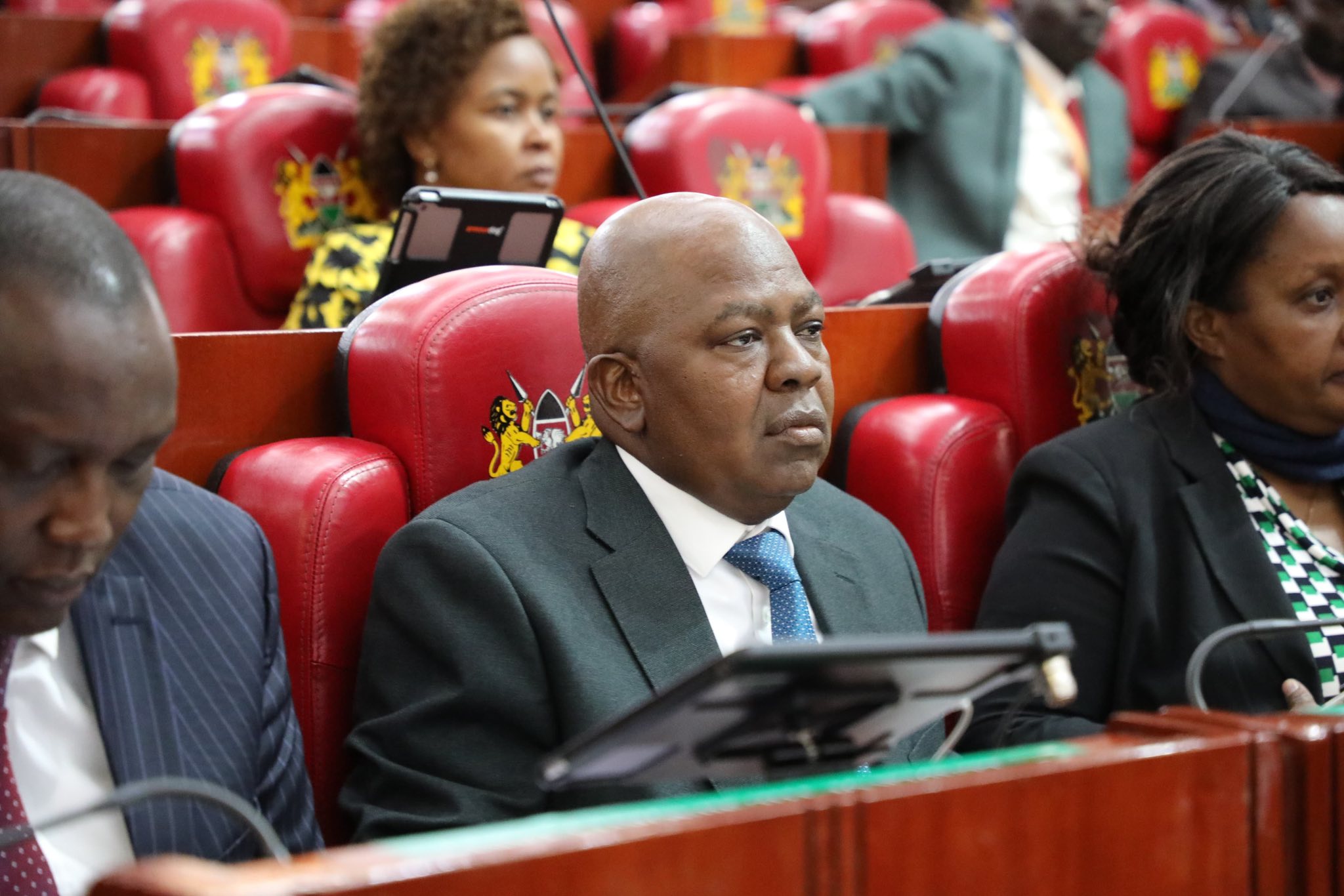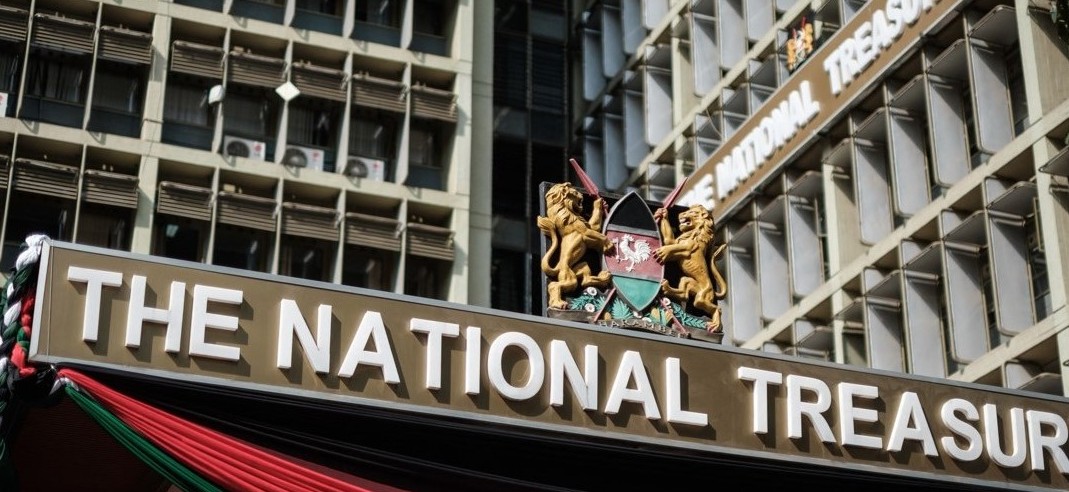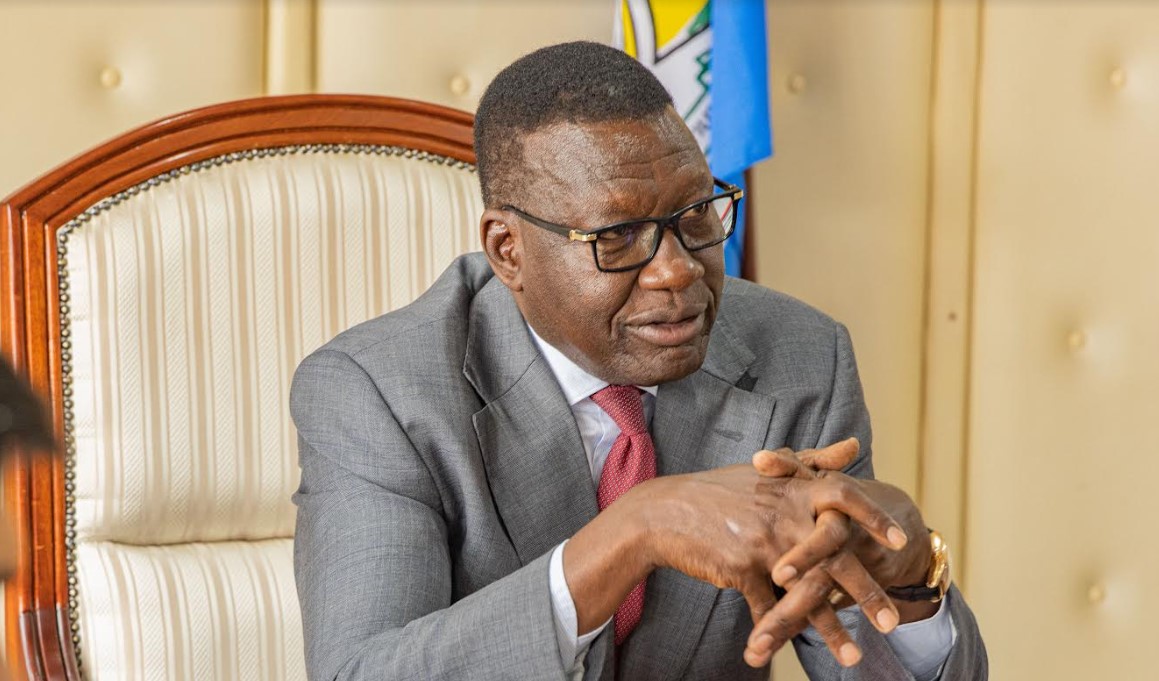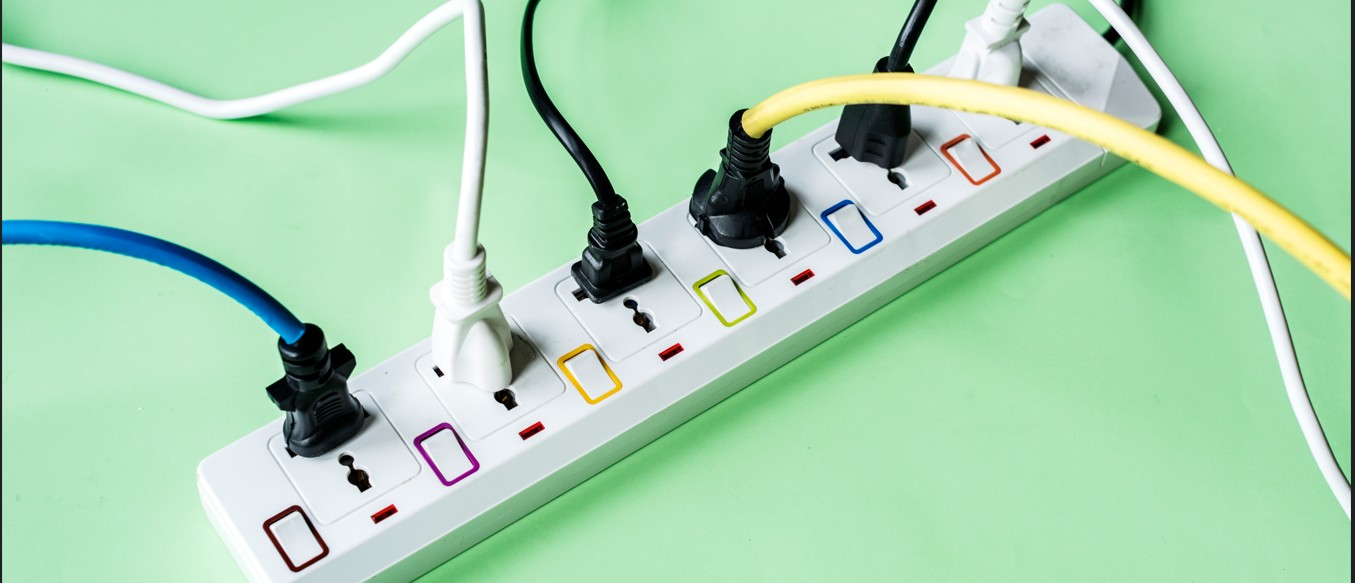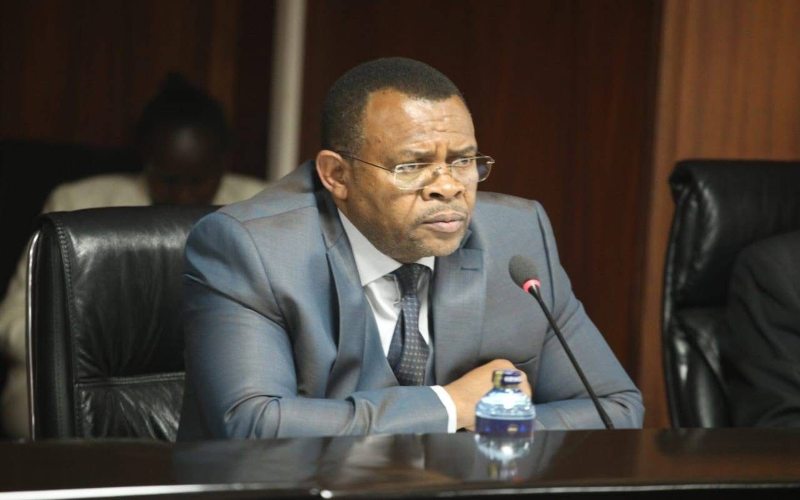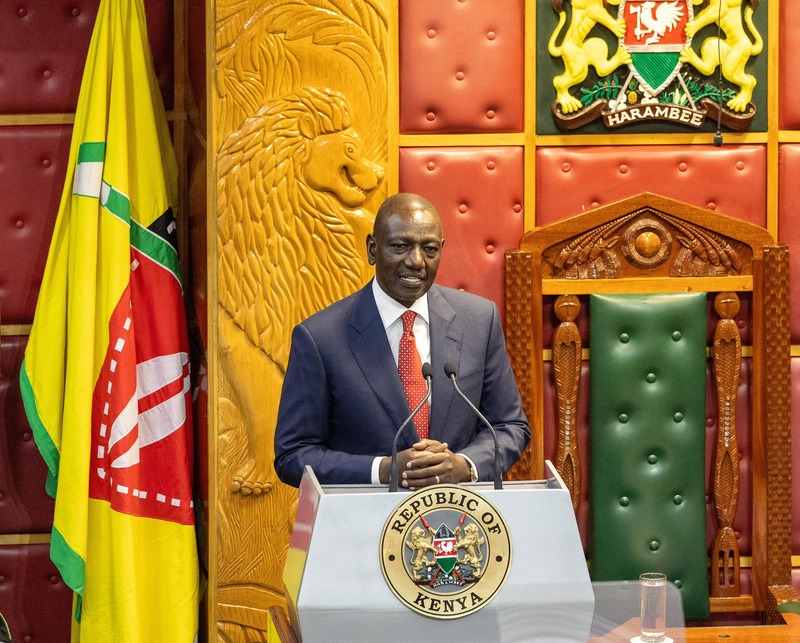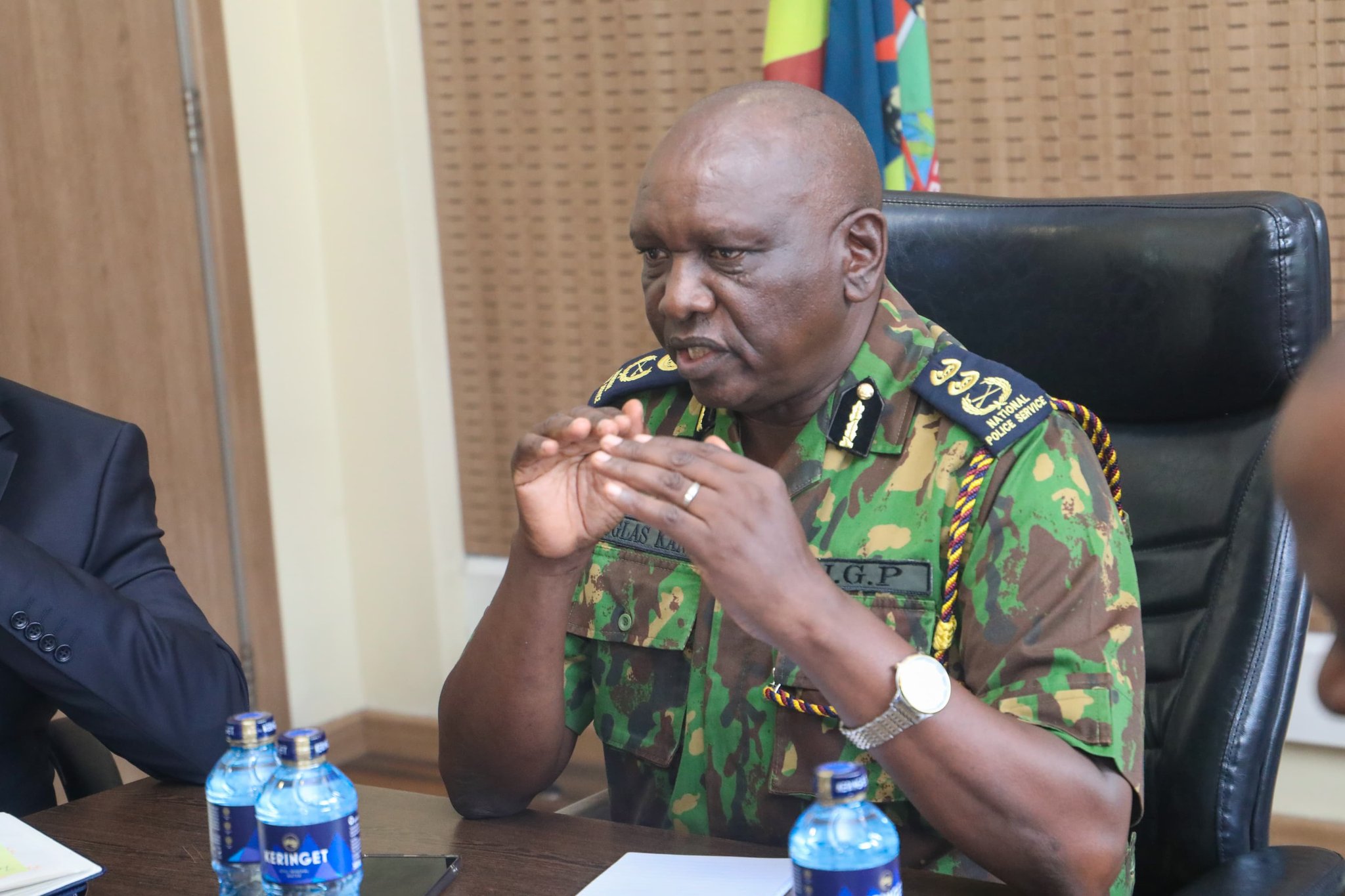Lack of junior schools in Lamu’s Boni Forest keeps Grade 7 learners at home
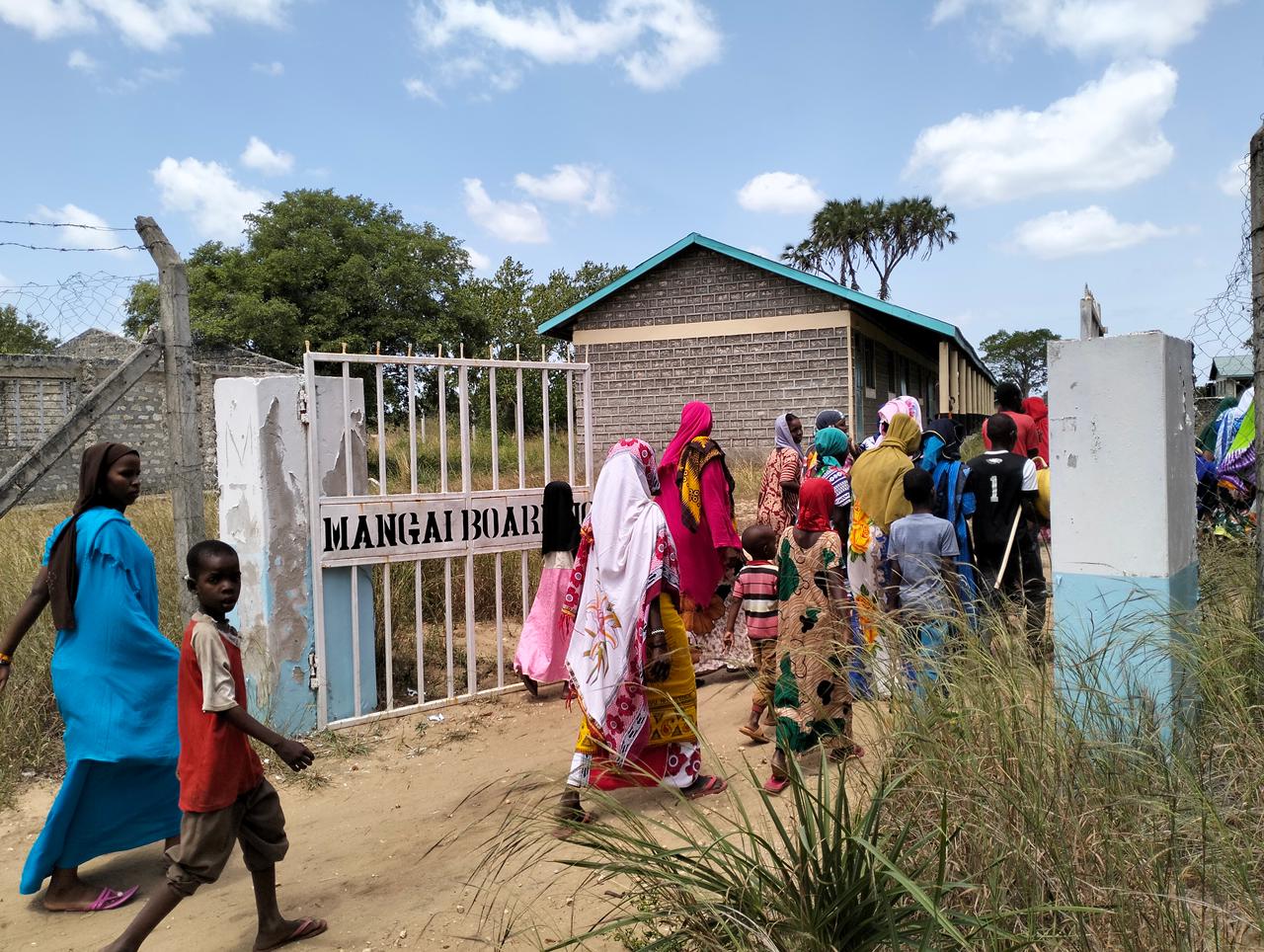
Most parents are unable to fund their children’s travel, either to Kiunga or the Mokowe Arid Zone schools, where JSS learning is available.
Parents in Lamu’s terror-prone Boni Forest are in agony as many of their children are dropping out of school after completing Grade Six, unable to proceed to junior secondary schools.
These pupils end up idling around the remote villages, with many turning to hunting, gathering wild fruits and honey harvesting in the dense Boni Forest.
More To Read
- KDF Special Forces kill five Al-Shabaab militants in Boni Forest operation
- Senators warn poor infrastructure and neglect threaten ECDE, propose major reforms
- New disaster clubs in Lamu Schools aim to strengthen emergency skills and civic engagement
- Five elite officers killed, five injured in Al-Shabaab ambush in Lamu’s Boni Forest
- Tension as Al-Shabaab insurgents storm Mangai village in Boni Forest, preach to locals
- Caught between culture and conservation: Why Boni people are unhappy with KWS
Boni Forest has five primary schools situated in key villages located right in the middle of the dense forest. They include Milimani, Basuba, Mangai, Mararani, and Kiangwe.
In 2014, all the schools were shut down due to insecurity caused by Al-Shabaab militants from neighbouring Somalia. Teachers in these schools fled for their lives never to return.
In 2021, the national government reopened all the five schools in Boni Forest.
Due to a lack of teachers and the amenities required for learning, the schools were, however, directed to operate right from ECDE up to Grade 6 only.
The rest of the learners in the upper classes were to be ferried to other safe places, including Kiunga in Lamu East and the Mokowe Arid Zone School in Lamu West, all of which are far away from Boni Forest, to proceed with their studies.
The Eastleigh Voice established that a big fraction of Grade 6 pupils has ended up failing to further their studies since going to Grade 7 and 8 is a tough affair for the poor Boni parents.
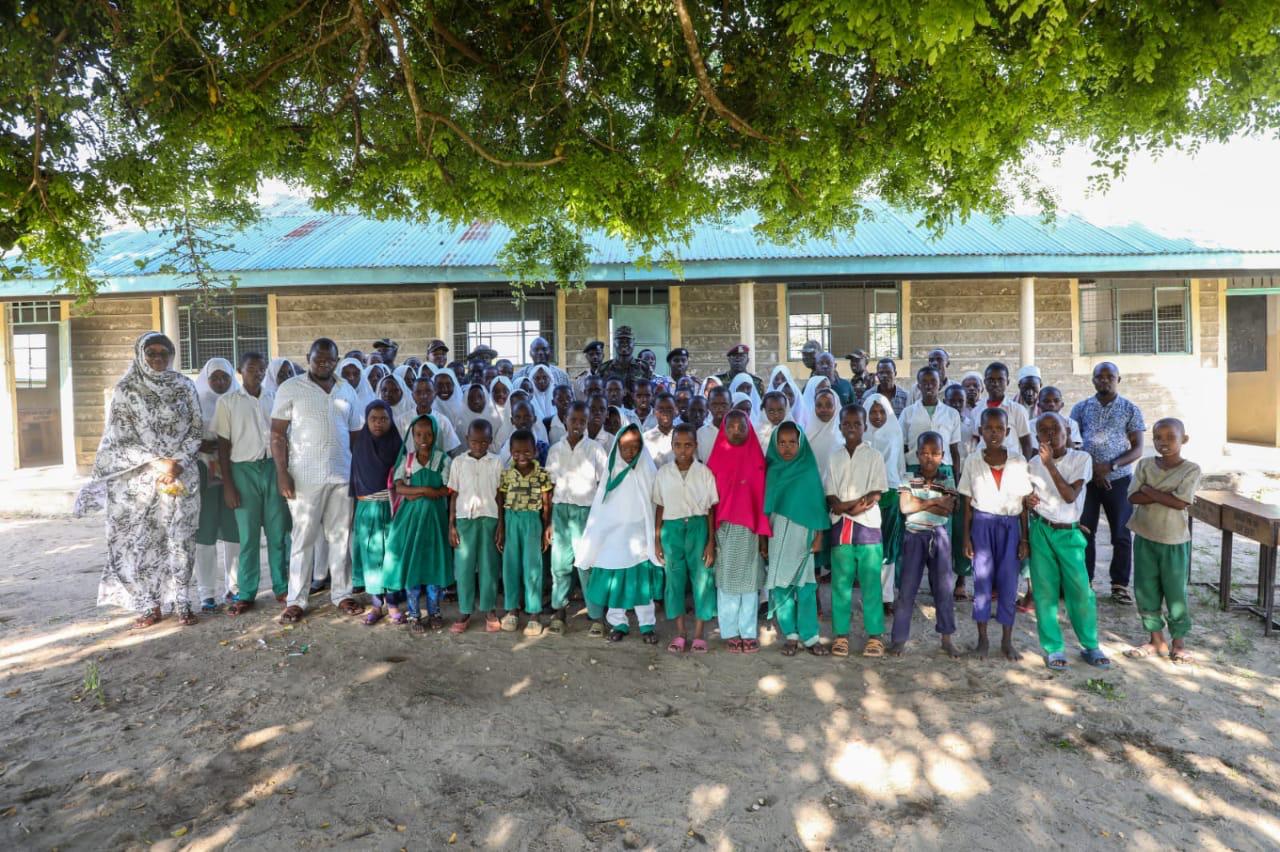 Pupils and teachers of Mangai Primary School in Boni Forest, Lamu East. (Photo: Farhiya Hussein)
Pupils and teachers of Mangai Primary School in Boni Forest, Lamu East. (Photo: Farhiya Hussein)
Unable to fund travel
Most of the parents are unable to fund their children’s travel, either to Kiunga or the Mokowe Arid Zone schools, where junior secondary school (JSS) learning is available.
Local administrators, security agencies, teachers and parents interviewed revealed that almost 50 per cent of pupils completing Grade 6 in the various schools in Boni Forest every year have failed to proceed with JSS learning and instead dropped out.
Mangai is the worst affected in terms of the many pupils who have ended up dropping out of school and wandering in the remote village.
The situation has also negatively affected girls, with many having ended up engaging in early sex, getting unwanted pregnancies and subsequently being entangled in early marriages.
A local administrator in Boni Forest, who declined to be identified as he is not authorised to speak to the press, said despite pushing to have as many children as possible join school, the major challenge faced in the villages is the lack of JSSs.
“We have pushed to have many Boni children join school. The unfortunate bit is when these pupils reach Grade 6, after sitting their Kenya Primary School Education Assessment (KPSEA), they drop out of school since institutions here don’t have Grade 7 and 8,” said the administrator.
“Parents are poor. They can’t fund their children to travel from Boni Forest to the Mokowe Arid Zone School which is about 150 kilometres from here to join Grades 7 and 8. This has led to almost 50 per cent of the pupils remaining as dropouts in our villages,” he added.
Abdallah Gure, a parent in Mangai, called on the government to introduce Grades 7 and 8 in each of the Boni schools or even establish a common JSS or centre at an identified area within Boni Forest.
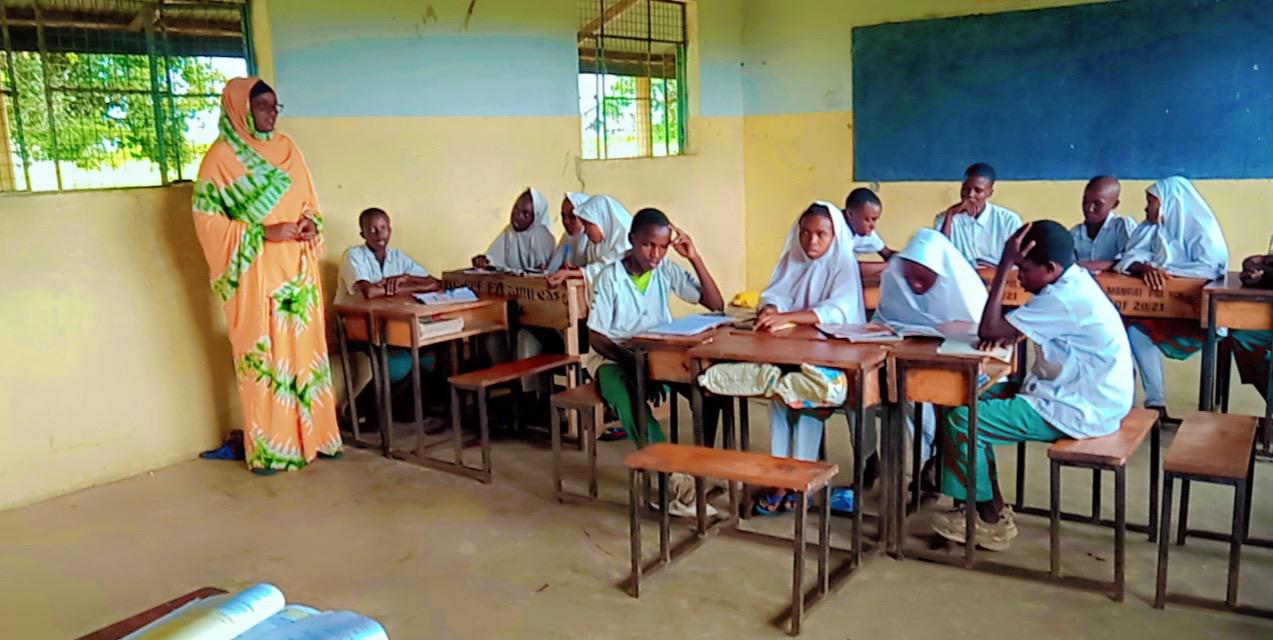 A teacher and pupils in class at Mangai Primary School in Boni Forest, Lamu East. (Photo: Farhiya Hussein)
A teacher and pupils in class at Mangai Primary School in Boni Forest, Lamu East. (Photo: Farhiya Hussein)
Poor
“The government has been agitating for a 100 per cent transition. This can’t happen if we lack JSS in Boni Forest. We’re poor and we can’t cater for our children’s travel to join JSS in far places like Mokowe Arid Zone. I believe once JSS classes are introduced in our schools or a common JSS centre is established, be it in Mangai or Kiangwe, then, as parents we will have an easy time funding our children’s joining JSS within our locality,” Abdallah said.
Mariam Abdi, a mother of five at Mararani, thanked the local administration in Boni Forest for introducing a rule that allows only individuals with national identity cards to get married.
Mariam said many girls who have dropped out of school are engaging in sex and secretly getting married.
“The government should fast-track the introduction of JSS classes in Boni Forest to rescue our girls from early marriages and unwanted pregnancies. Those dropping out of school after completing Grade 6 always rush to be impregnated and get married. But we thank the chiefs, their assistants and Nyumba Kumi officials for introducing rules in our villages. No one can be married if they have not shown IDs,” said Mariam.
Contacted, Lamu East Sub-County Director of Education Ali Lali said the Ministry of Education has already embarked on the construction of a common JSS learning centre at Kiangwe to accommodate JSS learners from all the five villages of Boni Forest.
The construction of the two classroom blocks with a capacity to hold at least 100 learners started in August this year.
It is expected to be ready by December this year to pave the way for JSS learners to join the centre by January 2025.
“Parents shouldn’t be worried. Plans are underway to have a JSS common centre at Kiangwe. Construction is already ongoing. We expect to complete construction by December this year. Enrolment of JSS learners from Kiangwe and the other villages of Milimani, Basuba, Mangai and Mararani, all in Boni Forest, will start by January next year,” said Ali.
He called on parents to monitor the behaviour of their children and be strict.
“We’ve scenarios where school girls are impregnated, sneaked and married off. That’s unwarranted. Let the Boni parents be responsible and protect their children. Ensure children join and remain in school instead of marrying them off. The government is doing its part. We want a reciprocate of the same on the side of the parents,” Ali said.
Top Stories Today


